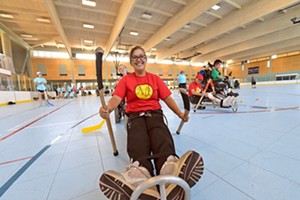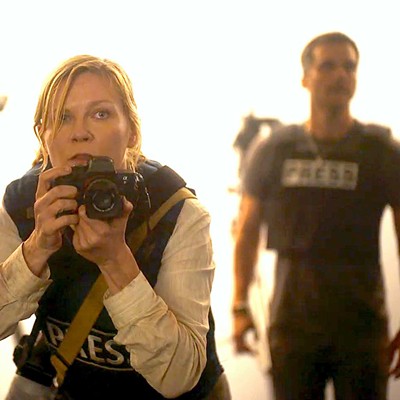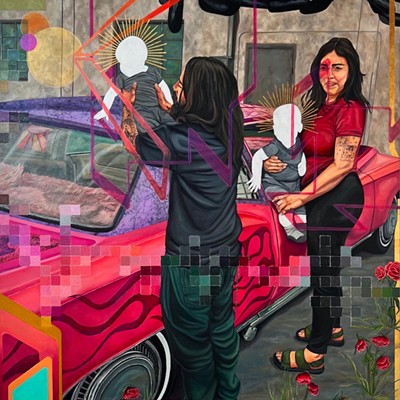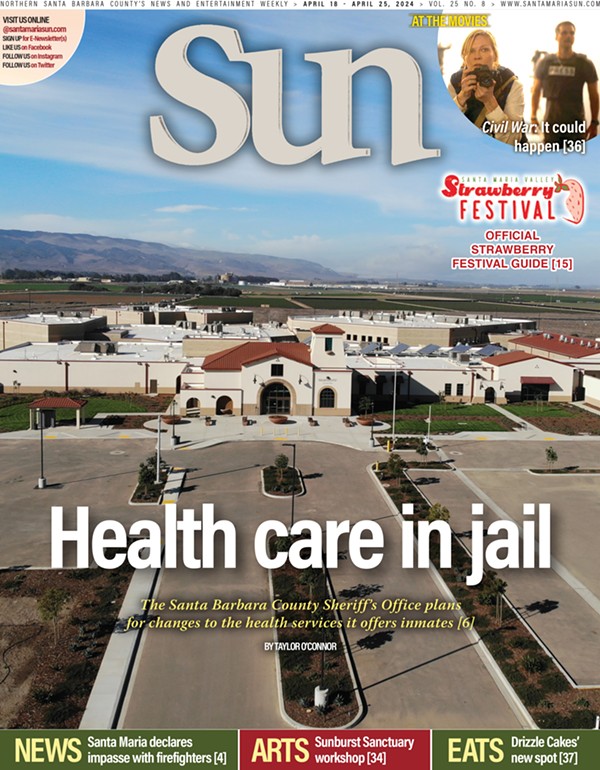The athletes came from all over—from Los Angeles and Bakersfield, from Ventura and San Luis Obispo counties, and from Santa Barbara as well. For a week, armed with hockey sticks and hand bicycles, they occupied a building on USCB’s campus.
“We just kind of invade the rec center,” said program coordinator Rene Van Hoorn. They’re a small army of athletes with disabilities and a handful of paralympians, a staff of recreational therapists, a volunteer coordinator, scores of unpaid volunteers, and 35 campers who use a wheelchair or can use one to participate in sports.
The occasion was the 29th annual Junior Wheelchair Sports Camp, paid for by the Cottage Rehabilitation Hospital Foundation and aimed at offering a crash course in various wheelchair sports. Campers spend five hours a day learning that they can play in ways they may not have thought possible.
Van Hoorn, who directs the camp, is a recreation therapist at Cottage. She’s directed the program since stewardship was passed to Cottage from USCB seven years ago.
“We work with people on quality of life,” she said. “We get them back to their recreation—what brings them pleasure in life.” At Cottage Rehabilitation, where she works, there are all kinds of recreational therapy. It could be teaching a grandmother who’s had a stroke how to knit with one hand, or getting somebody back into a kayak after they’ve had a spinal injury.
Some of the campers were born with a disability; others were left with one after an injury or illness. At camp, the kids have the chance to meet and work with paralympic athletes. More than a few of the instructors, Van Hoorn said, are paralympians. That’s the case with a tennis instructor, and a recent camp alumnus who plays for the United States national power soccer team.
Those counselors and teachers, Van Hoorn said, are meant to stand as role models. “Look at me, I work as a teacher, an engineer,” she said. “Our goal at camp is not once a year where kids go in to learn an activity.”
Mike Wyatt, who radiates a contagious enthusiasm in conversation, isn’t a professional athlete—he makes his money writing for a magazine about French bulldogs, whose editor he reached out to when looking for advice on his own sick “frenchie.” A year later, she called him back and offered him a job.
He said Van Hoorn called him up one day in much the same way. She was looking for someone who had experience playing rugby, as Wyatt did, and who was interested in helping out with the camp.
“I went up there and just fell in love with it,” he recalled.
“I actually teach the kids sports,” Wyatt said. He worked as the lead instructor this year and has been involved with the program for eight years. The array of sports that he teaches is dizzying; a partial list includes racquetball, rugby, bocce, dodgeball, soccer, sled hockey, and hand cycling. On Fridays, he said, the campers get in the pool and learn kayaking and scuba diving.
Like most of the instructors at the camp, Wyatt is physically disabled. On April 21, 1988, he was in a car accident while spending the weekend with his girlfriend. He survived a C6/7 quadriplegic: His spine was damaged near the base of his neck, leaving him in a wheelchair with limited use of his upper body.
“It was a blessing in disguise,” Wyatt said. Without his injury, he may not have gotten involved with the camp, which he describes as the “highlight of my year.”
His favorite part is watching a shift in mindset for the campers, “watching them go from thinking they can’t do something to thinking that they can.” The campers light up, he said, and watching them light up is a boon for the volunteers.
“They come in there as young guys and girls, and they leave as gentlemen and ladies,” he said. “They come in one way and leave another.”
That change, he said, is hard to overstate. Campers go on to college; they land jobs in the careers they want. “It’s a little bit about the sports, but it’s so much more about maturing, growing up, learning how to deal with life like situations,” Wyatt said.
That happened with a camper named David, who, because of his disability, had never been underwater. After a few days in the pool at camp, as Wyatt tells it, David went underwater for the first time.
“It was huge,” Wyatt gushed. “It was monumental. When you see this kid slide up and be so happy, realizing he had done something he never thought he could.”
Contact Staff Writer Sean McNulty at [email protected].










